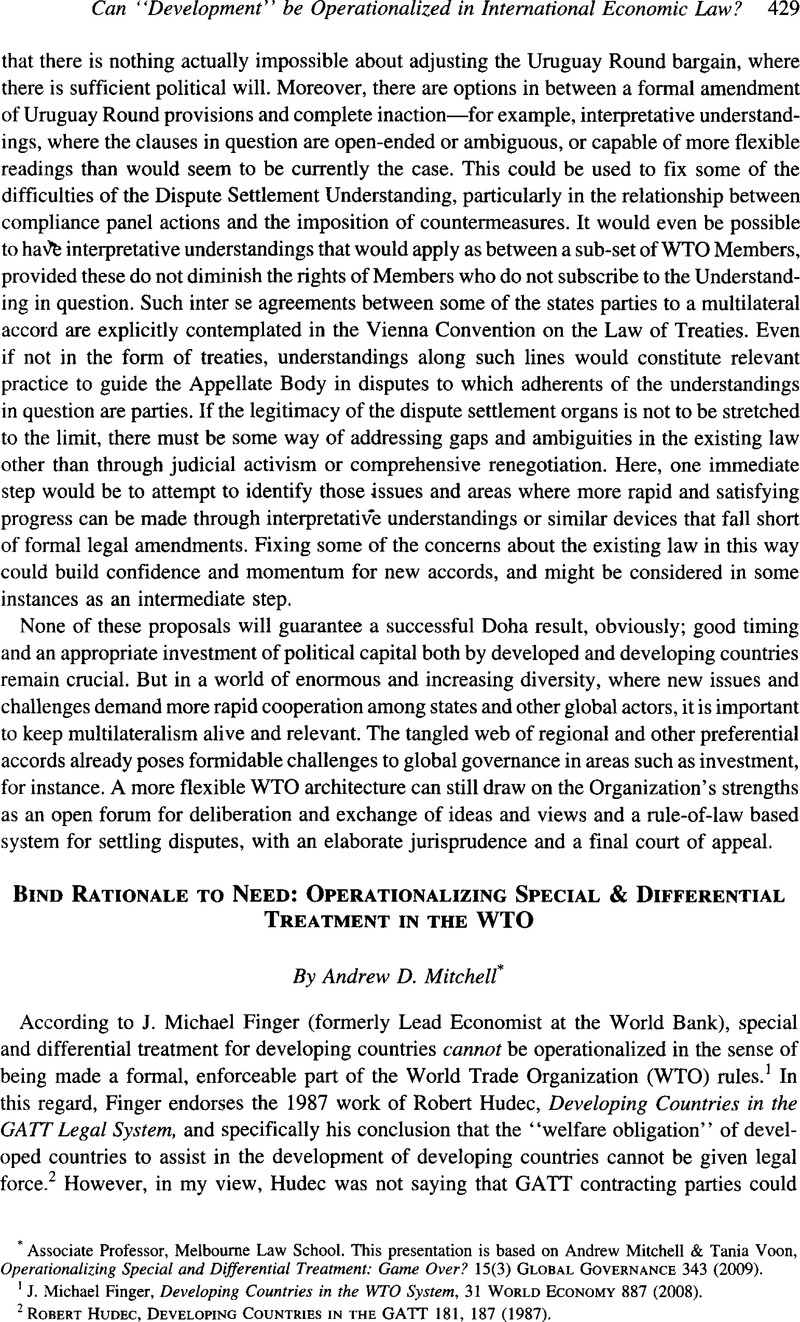No CrossRef data available.
Article contents
Bind Rationale to Need: Operationalizing Special & Differential Treatment in the WTO
Published online by Cambridge University Press: 28 February 2017
Abstract

- Type
- Learning from Doha: Can “Development” be Operationalized in International Economic Law?
- Information
- Copyright
- Copyright © American Society of International Law 2009
References
1 Finger, J. Michael, Developing Countries in the WTO System, 31 World Economy 887 (2008)CrossRefGoogle Scholar.
2 Hudec, Robert, Developing Countries in the GATT 181, 187 (1987)Google Scholar.
3 Id. at 187.
4 See Mitchell, Andrew, A Legal Principle of Special and Differential Treatment for WTO Disputes, 5 World Trade Review 446 (2006) 469CrossRefGoogle Scholar; Mitchell, Andrew, Legal Principles in WTO Disputes (2008)CrossRefGoogle Scholar, ch. 7.
5 HUDEC, supra note 2, at 187-8.
6 Hoekman, Bernard, Operationalizing the Concept of Policy Space in the WTO: Beyond Special and Differential Treatment, 8 J. Int’l Eco. L. 409, 416-7, 422 (2005)Google Scholar.
7 Trachtman, Joel, Ensuring a Development-friendly WTO, 1 Bridges Monthly Rev. 18 (Feb. 2008)Google Scholar.
8 Keck, Alexander and Low, Patrick, Special and Differential Treatment in the WTO: Why, When, and How? in Economic Development and Multilateral Trade Cooperation, 147, 175-6, 178-9, 182 (Evenett, Simon & Hoekman, Bernard eds., 2006)Google Scholar.
9 WTO, World Trade Report 303 (2007).




